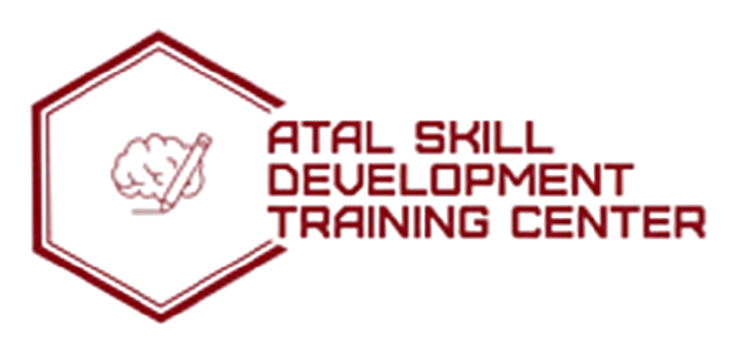🛠️ ASDTC Operational Support: Ensuring Efficiency & Excellence in Execution
🌐 Key Areas of Operational Support
-
Training Center Operations
-
Infrastructure Management: Ensuring that all training centers are equipped with necessary resources (classrooms, labs, equipment) as per SSC standards. Regular assessments for infrastructure compliance to ensure the environment is conducive to learning.
-
Timely Scheduling & Batch Management: Efficient scheduling of batches, ensuring that there is no overlap and students get the appropriate course timings as per their convenience.
-
Trainer Support & Development: Providing ongoing training and professional development for trainers, ensuring they stay updated with the latest teaching methodologies and curriculum changes. Support includes regular workshops and assessment of teaching quality.
-
-
Course Delivery & Quality Control
-
Curriculum Alignment: Ensuring all courses are in line with NSQF (National Skills Qualifications Framework) and SSC standards. Regular updates to training materials, modules, and assessment tools.
-
Training Methodology & Pedagogy: Adopting a learner-centric approach by introducing blended learning models that combine in-person and digital instruction, hands-on training, and real-life case studies.
-
Feedback Loops & Continuous Improvement: Implementing regular feedback mechanisms from both students and trainers to improve the quality of courses and address concerns. This feedback will be analyzed for curriculum refinement.
-
-
Technology Integration for Operations
-
Learning Management System (LMS): A robust platform for online course delivery, attendance tracking, and certification management. It will allow students to access course materials, view performance, and receive certificates digitally.
-
Real-Time Reporting & Analytics: Dashboard tools for center coordinators and managers to track attendance, progress, and student feedback in real time. This enables data-driven decision-making to improve performance at every level.
-
Mobile App for Trainers & Students: A mobile app for quick updates, attendance logging, progress tracking, and resource sharing, ensuring constant communication and timely interventions.
-
-
Student Support Services
-
Pre-Training Orientation: Offering a clear roadmap for students to understand their learning journey, including assessments, timelines, and key milestones.
-
Mentorship & Counseling: Providing career counseling services, including advice on post-training job opportunities, interview preparation, and guidance on entrepreneurial ventures.
-
Placement Assistance: Streamlining the job placement process with an employer partnership network. Building relationships with companies to ensure a consistent flow of job opportunities for students post-certification.
-
-
Compliance & Certification Management
-
Documentation & Auditing: Regular audits to ensure compliance with government and SSC standards. Maintaining records of certifications issued, attendance, and course completion for reporting and regulatory purposes.
-
Regulatory Updates: Keeping the team updated with the latest government policies, skill development schemes, and regulatory requirements to ensure adherence.
-
⚙️ Support for Instructors and Trainers
-
Trainer Resource Management
-
Instructor Onboarding Process: Streamlined documentation, contract signing, and SSC certification verification. A centralized database to track trainer credentials and course assignments.
-
Professional Development: Offering Train-the-Trainer (ToT) sessions, workshops, and certifications to keep instructors up to date with industry standards and teaching techniques.
-
Trainer Feedback System: Collecting feedback from students on trainer performance, ensuring continuous growth and improvement in instructional delivery.
-
-
Trainer Monitoring & Evaluation
-
Peer Observations: Implementing a peer evaluation system where experienced trainers observe and evaluate new trainers, offering constructive feedback.
-
Student Feedback Integration: Regular analysis of student feedback on teaching quality to monitor trainers’ effectiveness and identify areas for development.
-
Performance Metrics: Setting clear Key Performance Indicators (KPIs) for trainers such as session completion rates, student feedback scores, and course completion rates.
-
📈 Operational KPIs for Success
-
Attendance Rates: Track student attendance rates to identify engagement levels and intervene early if required.
-
Course Completion Rate: Measure the percentage of students completing the training programs on time.
-
Feedback & Satisfaction Scores: Collect quantitative and qualitative feedback from both students and trainers to continuously improve course offerings.
-
Placement Rate: Track the percentage of students who successfully secure jobs or start their own businesses after completing the training.
-
Trainer Effectiveness: Regular evaluations of trainer performance based on student satisfaction, retention rates, and learning outcomes.
🔄 Feedback-Driven Continuous Improvement
-
Regular Performance Reviews: Monthly and quarterly reviews of the operational processes to identify bottlenecks or inefficiencies.
-
Ongoing Staff Training: Offering continuous professional development for all operational team members to ensure smooth execution and alignment with the latest industry standards.
🚀 Scaling Up Operations for Future Growth
-
Geographical Expansion: Based on demand and success stories, we aim to scale the ASDTC network across new regions, focusing on areas with limited access to skill development opportunities.
-
Franchise Model for Training Centers: Introducing a franchise model for scaling the network of training centers, ensuring consistent quality while expanding our reach.
🌟 Why Choose ASDTC for Operational Support?
-
End-to-End Solutions: From initial student engagement to post-training placement, ASDTC offers a comprehensive, well-integrated support system.
-
Proven Efficiency: With streamlined processes and a dedicated team, we ensure operational excellence at every step of the training journey.
-
Continuous Innovation: Always adopting the latest tools, technologies, and methodologies to enhance the quality of training and operational efficiency.

